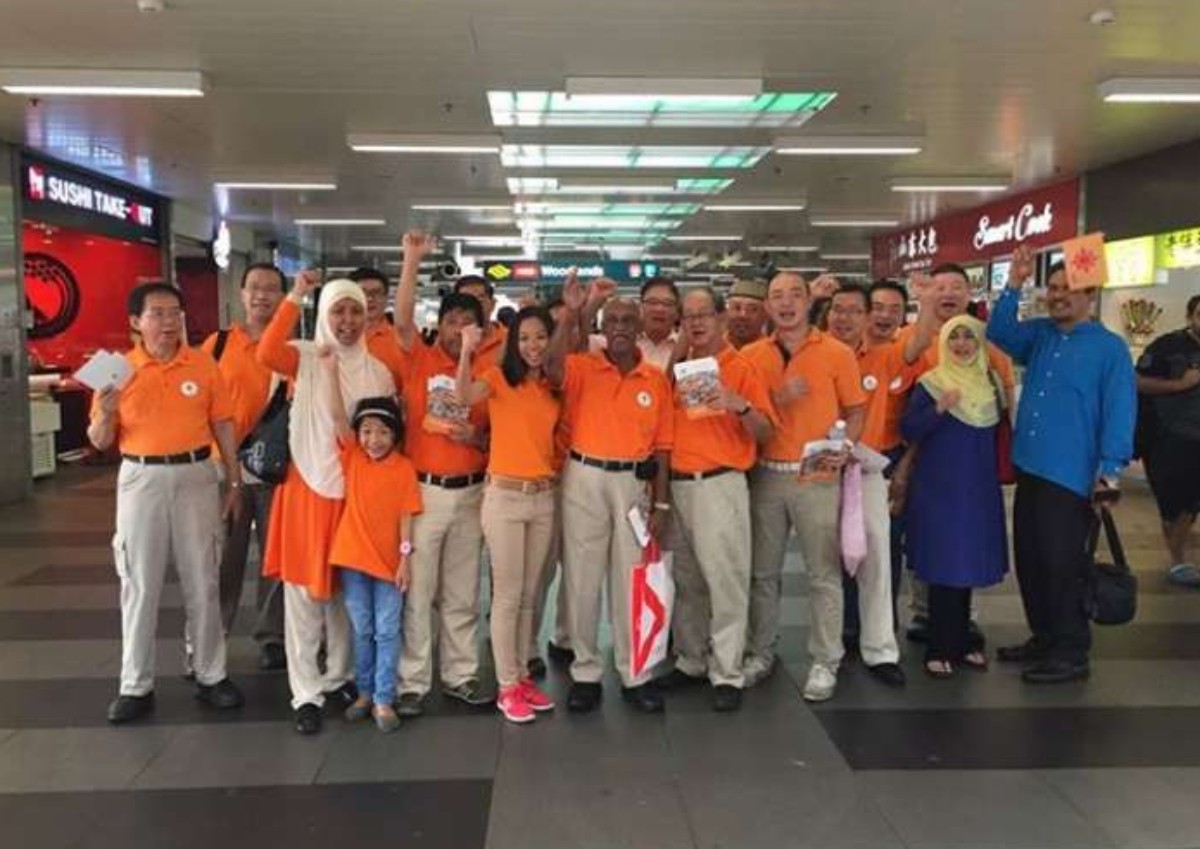The dummy's guide to Singapore's political parties: The NSP edition

 PUBLISHED ONJune 24, 2020 11:50 AMBYKimberly Anne Lim
PUBLISHED ONJune 24, 2020 11:50 AMBYKimberly Anne LimUnless you've been living under a rock, you should have some inkling of the People's Action Party (PAP) and the Workers' Party (WP).
But what about RP? Or PSP? Or SDP? If these acronyms mean nothing to you, then you're in the right place.
In this series — a cheat sheet of sorts — we sieve out the facts you ought to know about Singapore's political parties.
By the end of this, you should have a better idea of the parties who may be contesting in the upcoming general election and what they're all about.
Our next party holds the honour of being the first opposition party besides the Workers' Party to clinch a seat in Parliament under the Non-Constituency MP scheme.
When were they formed?
The party was founded in 1987. Its founding members include president Kum Teng Hock, a former member of the People's Action Party and secretary-general Soon Kia Seng, the former chairman of the Singapore Democratic Party.
According to Soon, the party's name reflects its aim — to promote national solidarity.
Reno Fong is the current president of the party, while Spencer Ng is the secretary-general. Unlike other parties in Singapore, the president leads the party while the secretary-general is second-in-command.

Over the years, several party members have left and founded their own political parties.
Former acting secretary-general Lim Tean founded Peoples Voice Party in 2018, while former secretary-general Goh Meng Seng founded People's Power Party in 2015.
ALSO READ: The dummy's guide to Singapore's political parties: The DPP edition
What are they all about?
NSP says it is a "democratic, pragmatic and progressive" party that believes in fair competition, low unemployment and redistribution.
In the party's manifesto, it calls for:
Where are they contesting?
[embed]https://www.facebook.com/nspsg/photos/a.534493349953756/2304113952991678/?type=3&theatre[/embed]
Ng told reporters in March that the party has its eye on Sembawang GRC, Tampines GRCs, Pioneer SMC and MacPherson SMC — all constituencies it had contested in 2015.
Ng is set to lead the team in Sembawang while Fong will take the lead in Tampines.
Track record
[embed]https://www.facebook.com/nspsg/photos/a.287443164658777/840172842719137/?type=3&theater[/embed]
NSP has contested in every general election since 1988.
While it has not won a seat in an election yet, it clinched a seat in Parliament in 2001 when then secretary-general Steve Chia became an NCMP.
Chia, who now leads the Singapore People's Party, had contested in Chua Chu Kang SMC then and lost with 34.6 per cent of the votes.
However, things did not go as well for the party in 2015.
A controversial decision to contest MacPherson SMC, entering into a three-cornered fight with PAP and the Workers' Party, resulted in the resignations of acting secretary-general Hazel Poa and Central Executive Committee member Mohamed Fazli Talip.
NSP's Cheo Chai Chen ended up forfeiting his electoral deposit after obtaining only 215 votes, or 0.8 per cent of the vote, in the SMC.
NSP also received only 3.5 per cent of the popular vote that year, down from 12 per cent in 2011.
In case you missed it
Here are the other parties we've covered:
Stay tuned for the next instalment in the series — the Singapore People's Party
kimberlylim@asiaone.com